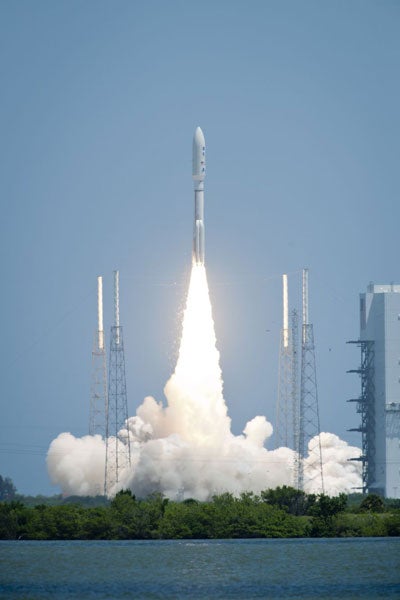Jupiter mission blasts off

Your support helps us to tell the story
From reproductive rights to climate change to Big Tech, The Independent is on the ground when the story is developing. Whether it's investigating the financials of Elon Musk's pro-Trump PAC or producing our latest documentary, 'The A Word', which shines a light on the American women fighting for reproductive rights, we know how important it is to parse out the facts from the messaging.
At such a critical moment in US history, we need reporters on the ground. Your donation allows us to keep sending journalists to speak to both sides of the story.
The Independent is trusted by Americans across the entire political spectrum. And unlike many other quality news outlets, we choose not to lock Americans out of our reporting and analysis with paywalls. We believe quality journalism should be available to everyone, paid for by those who can afford it.
Your support makes all the difference.Nasa has launched a solar-powered spacecraft on a five-year mission to Jupiter.
The robotic explorer, named Juno, blasted off aboard an unmanned rocket today from Cape Canaveral. It will take Juno five years to reach the largest planet in the solar system.
Juno is solar powered with three huge panels, a first for a spacecraft intended to roam so far from the sun. The total mission costs 1.1 billion dollars (£671 million).
Scientists hope to discover the recipe for making planets, by identifying Jupiter's secret ingredients. The gas giant is believed to be the solar system's oldest planet.
Attached to Juno are three little Lego figures.
They represent the Italian physicist Galileo, who discovered Jupiter's biggest moons; the Roman god Jupiter; and his wife Juno, for whom the spacecraft is named.
AP
Join our commenting forum
Join thought-provoking conversations, follow other Independent readers and see their replies
Comments